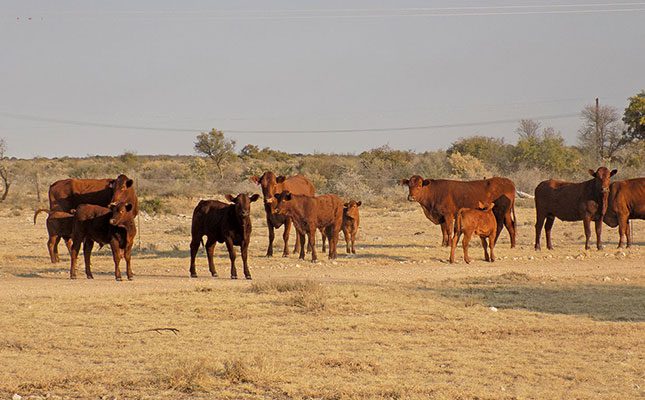
With new foot-and-mouth disease (FMD) outbreaks reported in Mpumalanga and Gauteng, China has announced a suspension of beef imports from South Africa.
The Department of Agriculture said in a statement on 10 May that two new cases had been confirmed. The first case related to a farm in Mpumalanga, where the disease was confirmed following trace-forward initiatives implemented after animals tested positive at an auction in Utrecht, KwaZulu-Natal (KZN).
READ Revolutionary device for diagnosing FMD, bird flu launched in SA
“Although these animals [in Mpumalanga] showed no clinical signs of disease, further investigation have confirmed that the virus has spread to adjacent camps on the same farm,” the department said.
FMD had not been identified on other farms in the area, but veterinary investigations and inspections continued.
The second case occurred in a feedlot in Gauteng, and FMD was confirmed after some animals began showing clinical signs of infection. The feedlot had reportedly received animals from an auction in Heidelberg, Gauteng.
“Samples were collected and prioritised for testing. Laboratory results for these samples are positive and confirmed that this is the same virus that is circulating in parts of KwaZulu-Natal,” the department said.
Investigations were underway to “trace back and trace forward all other animals that were bought and sold at the same auction”.
READ RPO advises on FMD outbreak control and biosecurity measures
These latest cases meant that FMD had now been confirmed in four provinces, namely Gauteng, Mpumalanga, KZN, and the Eastern Cape.
Dr Frikkie Maré, CEO of the Red Meat Producers’ Organisation, told Farmer’s Weekly that the organisation was very concerned about the continuing spread of the disease, and the implications of this for industry.
“We received notice of the ban by China halting beef exports during a meeting with Dipepeneneneng Serage [deputy director general of Animal Health at the department] last Thursday [8 May].”
Commenting on how the ban would affect the broader livestock sector in South Africa, Maré said about 13% of beef exports were destined for China in 2024.
However, only about 5% of the total of South Africa’s beef offering was for export, which meant that less than 1% of all South Africa’s beef was sent to China.
“The immediate effect with the closure of the Chinese border might thus not be so big, but in the past we saw that as soon as one country closes its borders, others follow suit.”
Maré said that the lack of a national traceability system remained a challenge for the industry when it came to tracing back infected animals and geo-fencing infected areas. Such a system would provide proof that animals destined for export had not come from infected areas, Maré said.
He called on all producers and industry role players to “do their part” by ensuring they sourced uninfected animals, implemented quarantine periods and followed biosecurity and traceability protocols.
He said while FMD remained a state-controlled disease, industry was engaging actively with government for short and long-term solutions.
Get trusted farming news from Farmers Weekly in Google Top Stories.
➕ Add Farmers Weekly to Google ✔ Takes 10 seconds · ✔ Remove anytime










